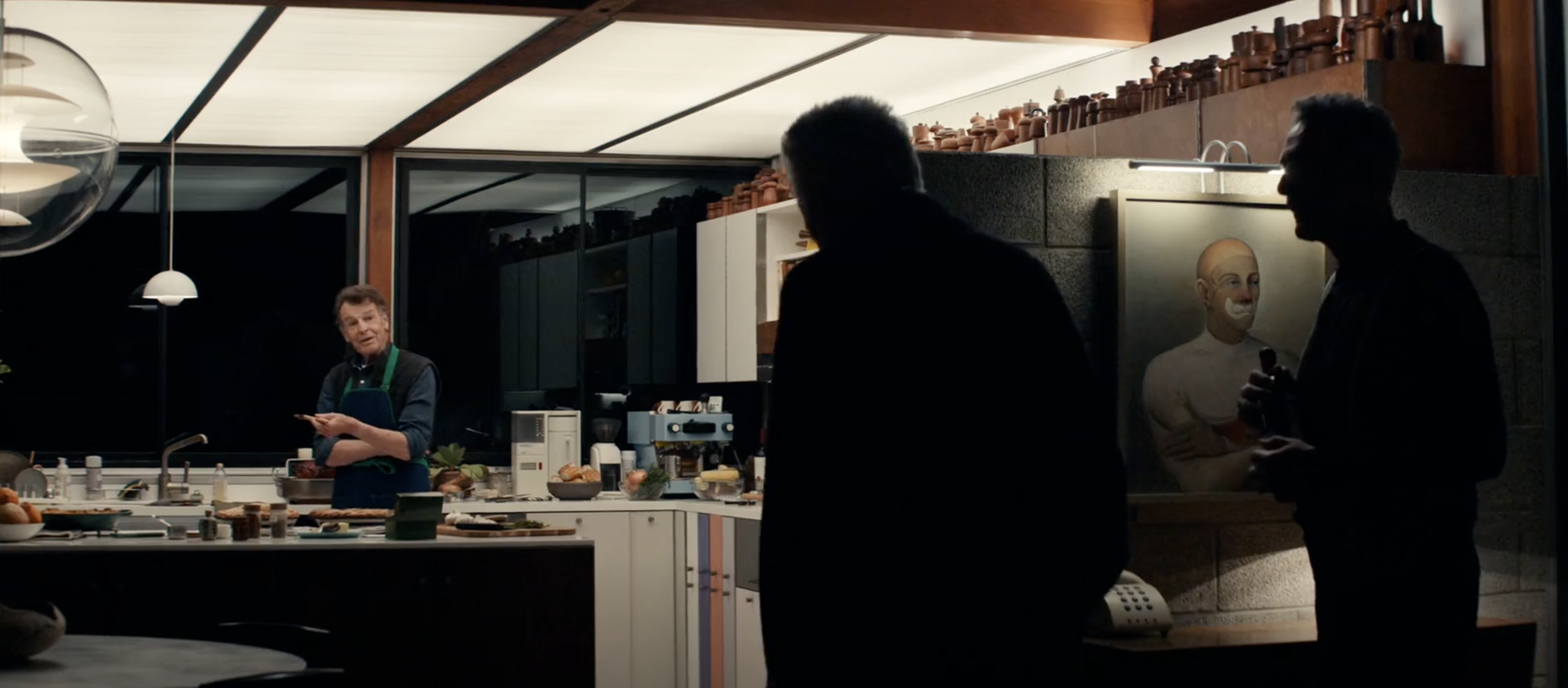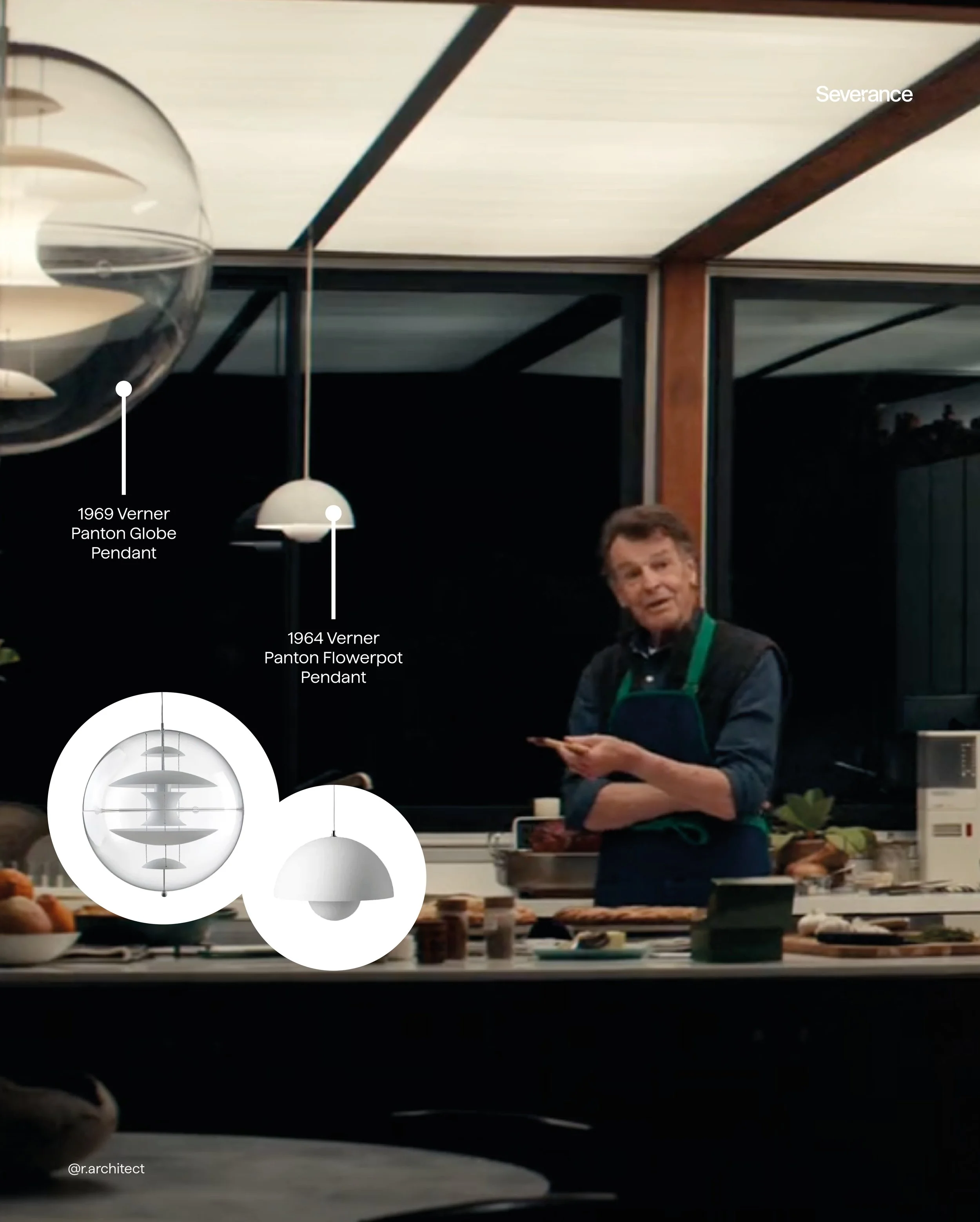Severance Interior Design: The Home of Burt and Fields
Filming Location: The Gerald Luss House (1955), New York
Set Decorator: David Schlesinger
Production Designer: Jeremy Hindle
Prop Master: Cat Miller
Stills: Apple TV+
Episode: Season 2 - Episode 6, ‘Attila’
Since its debut in 2022, Severance has become my favourite show for its unique approach to interiors and architecture. This is the second in a four-part series where I visually breakdown the key furniture pieces that define the spaces in Severance.
The scenes were filmed at the Gerald Luss House (1955) in New York. Gerald Luss, best known for the interiors of the Time-Life Building, originally designed this house as his personal residence. It served as a testing ground for the design language he would later bring to his commercial work.
I connected with the show’s brilliant set decorator, David Schlesinger, who shared insight into the house and how it was used for the show:
"[Gerald Luss] was the architect of the Time Life Building, and he was on par with Saarinen. He did not have the publicity machine that Saarinen had, and is less known, but still very important. He designed this house for himself, and it was a laboratory for many design elements that became part of the Time Life Building."
While the sterile environments of Severance play a central role in defining the show’s tone, the homes featured throughout the series offer an unexpected contrast. Burt and Field’s house, with its mid-century modern architecture and warm, inviting interiors, provides a stark difference to the cold and controlled spaces at Lumon.
Below is a visual breakdown of the key interior pieces that define Burt and Field’s home:
Image credit: Apple TV+
Ben & Aja Blanc, Notos No. 1 Chandelier (2022)
Designed by Rhode Island-based duo Ben & Aja Blanc, known for their blurred line between furniture and art.
Ultra Magnum Decanter
Designed for theatrical pours and oxygenation.
Robert Springfels, “Agnello Clown” (1949)
Chicago-based painter with a background in set design. His work often drifts between surrealism and figuration.
Michael Graves, Phone Model MG 1000 (2000)
Michael Graves, a leading figure in postmodern design and one of the rare American members of the Memphis group, designed this phone for Target in 2001. The phone’s rounded keys, stepped base, and off-centre proportions reflect Graves’s postmodern vocabulary and often bordering on toy-like.
La Marzocco, Linea Micra (2022)
Launched in 2022 as a scaled-down ‘Body Blue’ version of the brand’s café staple. Built in Florence with the same engineering as its commercial siblings.
Verner Panton, Globe Pendant (1969)
A high-concept piece from one of Denmark’s most playful modernists.
Verner Panton, Flowerpot Pendant (1964)
Designed during the height of the Space Age, its cheerful curves and bold colours were meant to signal optimism.
Jens Quistgaard, Dansk Grinders (1960s)
Turned teak grinders that became icons of mid-century tableware. Functional, tactile, and still produced today, though originals are collector favourites.
Jens Quistgaard, Kobenstyle Pots (1956)
Designed for Dansk during Quistgaard’s prolific run blending Scandinavian materials with American domestic ideals. Kobenstyle’s lid doubles as a trivet.
Robert Springfels, Victorian Child
Little is documented about this piece, but it’s likely from the same postwar period.







